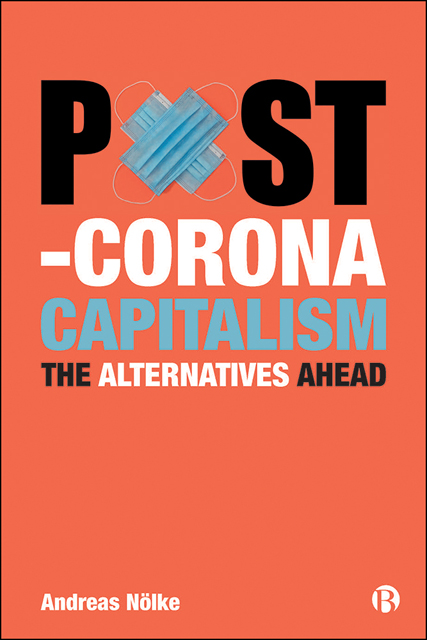Book contents
- Frontmatter
- Dedication
- Contents
- List of Abbreviations
- Acknowledgements
- Preface
- 1 Introduction: Confronting a Multidimensional Crisis of Capitalism
- Part I Capitalism and Society
- Part II Domestic Institutions of Capitalism on the Demand Side
- Part III Domestic Institutions of Capitalism on the Supply Side
- Part IV The International Institutions of Capitalism
- Part V Anthropocene Capitalism
- Part VI Geo-economic Shifts in Global Capitalism
- Part VII Ideologies in Contemporary Capitalism
- References
- Index
12 - Corporate Governance: Public Responsibility or Shareholder Value?
Published online by Cambridge University Press: 13 October 2022
- Frontmatter
- Dedication
- Contents
- List of Abbreviations
- Acknowledgements
- Preface
- 1 Introduction: Confronting a Multidimensional Crisis of Capitalism
- Part I Capitalism and Society
- Part II Domestic Institutions of Capitalism on the Demand Side
- Part III Domestic Institutions of Capitalism on the Supply Side
- Part IV The International Institutions of Capitalism
- Part V Anthropocene Capitalism
- Part VI Geo-economic Shifts in Global Capitalism
- Part VII Ideologies in Contemporary Capitalism
- References
- Index
Summary
During the coronavirus crisis and the related recession, many governments have initiated massive public rescue operations for business, given that the latter was collapsing in sectors such as tourism. A prominent part of these operations was the increase in public control over companies. Increasing public control took different forms. Often, this meant increasing public (partial) ownership, directly via state bodies or indirectly via public banks or sovereign wealth funds. In other cases, governments introduced regulations with regard to preventing the takeover of prized companies by foreign investors. Government financial support measures during the crisis sometimes have led to controversial discussions about the behaviour on the side of business, in particular when the latter at the same time have used share buy-backs, provided dividend payments to shareholders or paid a massive bonus for top management. Critics argued that companies were using taxpayers’ money for the enrichment of company owners and top management. Companies, in turn, defended the practice by highlighting their obligations towards shareholders or the need to retain top talent. Will post-corona capitalism focus on shareholder value or on the public responsibility of companies?
Corporate governance in different models and phases of capitalism
We can explain the competing rationales behind this controversy by linking them to various themes in Comparative Political Economy; namely, the discussions on financialization and on corporate governance in different types of capitalism (Clift, 2014: 230–56; Menz, 2017: 146–77; Vermeiren 2021: 118–46). The process of financialization of capitalism has unfolded since the late 1970s. Financial markets, actors within these markets and a financial market perspective on economic processes increasingly became important during the last four decades, affecting many aspects of the economy (see also Chapter 8, Chapter 13, Chapter 17 and Chapter 31).
In case of corporate governance, financialization means the rise of ‘shareholder value’ conceptions. These conceptions demand the maximization of short-term returns for the owners of the firm. In order to implement this target, companies have different instruments at their disposal. One typical instrument is share buy-backs; that is, companies using retained earnings or taking up a loan in order to buy their own shares. This will increase demand for the latter, drive up their notations on the stock markets and make existing shareholders richer. Another typical instrument of shareholder value capitalism is stock options.
- Type
- Chapter
- Information
- Post-Corona CapitalismThe Alternatives Ahead, pp. 79 - 83Publisher: Bristol University PressPrint publication year: 2022



